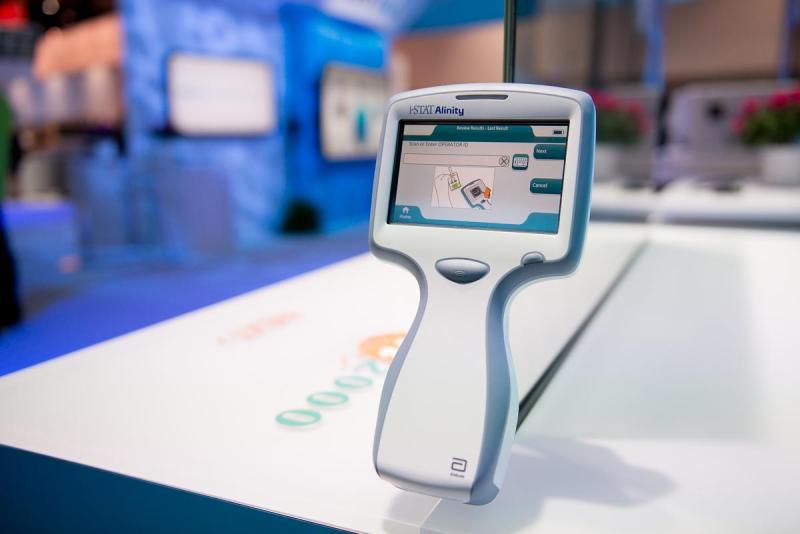Abbott has obtained a new clearance from the FDA for its rapid blood test to check out patients suspected of having a concussion or a mild traumatic brain injury.
With a 15-minute result given by a hand-held cartridge reader, the company said its test can be used at an adult’s bedside in an emergency room as well as within urgent care clinics or other healthcare settings to help rule out the need for a CT scan. It is designed to be used within the first 24 hours after a head injury.
But you won’t see Abbott’s i-STAT Alinity diagnostic device on the sidelines of sporting events just yet—the FDA’s green light still limits its use to locations with certified laboratory testing privileges.
The latest clearance, however, is a step in that direction, as it now allows the hand-held test to use whole, untreated blood samples. Its first FDA nod, from early 2021, had required that blood samples first be spun in a lab centrifuge to separate out the necessary plasma. The test also picked up a separate green light last year for its use on Abbott’s larger Alinity lab hardware.
“Clinicians have needed an objective way to assess patients with concussions,” Beth McQuiston, M.D., medical director in Abbott's diagnostics business, said in a statement. The company estimates that nearly 5 million people in the U.S. visit emergency rooms for a TBI each year, while more than half of people who may have a concussion never get checked.

“When you look at all the other diseases, or other organs in the body, they all have blood tests to help assess what's happening,” McQuiston said. “Now, we have a whole blood test that can help assess the brain right at the patient's bedside—expanding access to more health providers and therefore patients.”
The cartridge-based test searches the blood for two compounds released by the brain following tissue damage, known as ubiquitin C-terminal hydrolase L1 and glial fibrillary acidic protein.
A previous clinical study showed that an early analysis of these biomarkers could also help predict how well a patient will recover from a TBI in the weeks that follow as well as the chances of long-term complications such as comas, disability or death.
Abbott said it is currently developing its i-STAT test into one that can be used nearly anywhere as well as with teenagers and children.